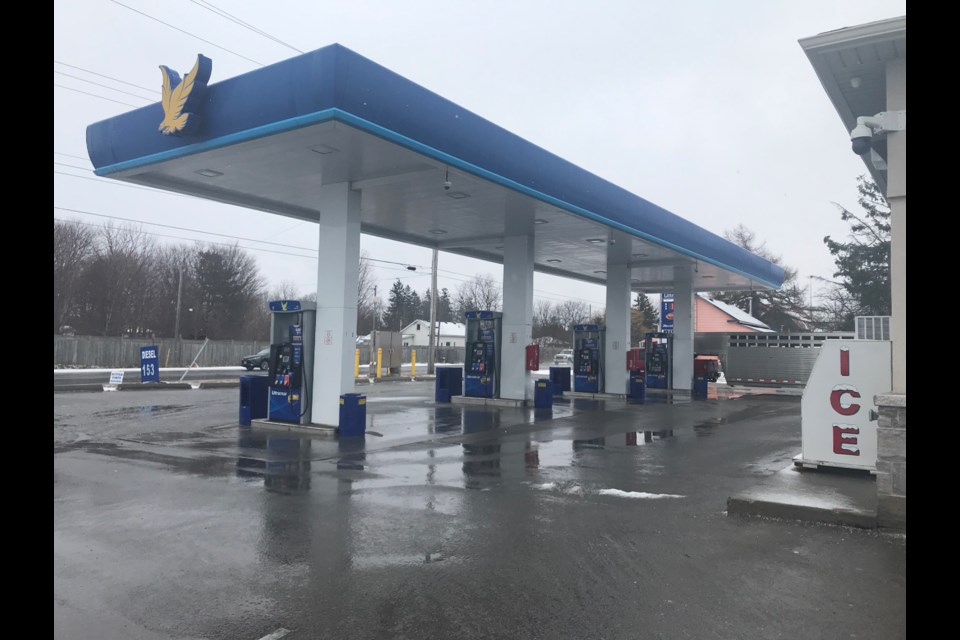Tomorrow is April Fools' Day. This year, however, April 1 also marks another increase to the federal carbon tax, and local drivers say it's no laughing matter.
According to gas price analyst Dan McTeague, the President of Canadians for Affordable Energy, he expects gas prices will increase three cents a litre for Saturday. Even with a small drop in wholesale prices for gasoline on the markets today, he says to look for pump prices to jump to $1.49 on average in most places.
The federal carbon tax is to increase to 14 cents per litre of gasoline from its current level of 11 cents per litre. According to the Paliamentary Budget Officer, it will cost the average household between $402 and $847 in 2023, even after the rebates.
While asked at the pumps today, many local commuters said despite knowing the bump in price was coming, it doesn't make it a less difficult pill to swallow.
"They keep raising taxes for property, for houses, for gas. We're being taxed to death," said Alcona resident Christine Richardson.
Richardson is retired and while she doesn't drive as much as she used to, she said the price jump will still impact her.
"I take my granddaughter to school every day, I go to my health appointments, get groceries and I run an Avon business, so I do driving for that. So yeah, it's going to affect me. The gas already is crazy enough," she said.
Innisfil resident Corey Betler didn't mince his words.
"I hate it," he said shaking his head. "And I can imagine because of the rising cost of inflation, the money has to come from somewhere, but there's got to be another way so that taxpayers ... more money isn't coming out of our pocket. Groceries are at an all-time high. It's just becoming more increasingly difficult to live in a country like Canada."
When asked if he'll have to cut back on certain things to keep a little extra money in his pocket, Betler said he would.
"I'm going to have to take the bus, or drive less. I'm going to have to make some significant changes in the way that I get around."
Innisfil resident Michael Davis says his wallet is going to take a huge hit.
"I don't really have a choice. I drive a truck for a living so it's even worse," Davis explained.
Neil Rubbl also drives a truck for a living. He says it's just one more thing the government is hitting Canadians with.
"If the price of gas doesn't go up, they gotta get their tax revenue from something else," he said. "They just need to get rid of it. The price of gas is high enough as it is. We're never going to see it below a dollar ever again."
Rudy Buczolits was just passing through the area, but agreed with others.
"It's ridiculous. Everything's just getting too expensive and they just keep squandering our money," he said. "You don't want to get me started on my thoughts and opinions on our friends in Ottawa," he laughed.
Lefroy resident Tommy Panetta owns a business and says the carbon tax is going to impact him in the long run. The cost to fill his truck runs him anywhere from $150 to $180 and only lasts him about three days.
"It's going to go up on my expenses quite a bit, and I have to pass on the expense," he explained. "It's going to impact me in the long run because our profit margin's going to be down and eventually goes over to the homeowners."
Each year since 2019, the price of the tax has gone up by $10, and reached $50 a tonne in 2022. This year, however, the price will start rising by $15 a tonne per year, ultimately reaching $170 a tonne by 2030. That means that on April 1, the carbon tax will rise to $65 a tonne, a 23 per cent increase from last year.
Andrea Khanjin, Progressive Conservative Member of Provincial Parliament for Barrie—Innisfil, tabled a motion this week in the Ontario Legislature calling on the federal government to halt the carbon tax hike.
“As hardworking families across this province are struggling with the rising cost of living, the last thing any government should do is raise taxes,” MPP Khanjin said. "As families in Barrie–Innisfil and right across the province are doing their best to make ends meet, every dollar counts."
The federal government is imposing a second carbon tax through fuel regulations on July 1, 2023. That tax will increase the price of gas by up to 13 cents per litre by 2023. There are no rebates for the second carbon tax.
